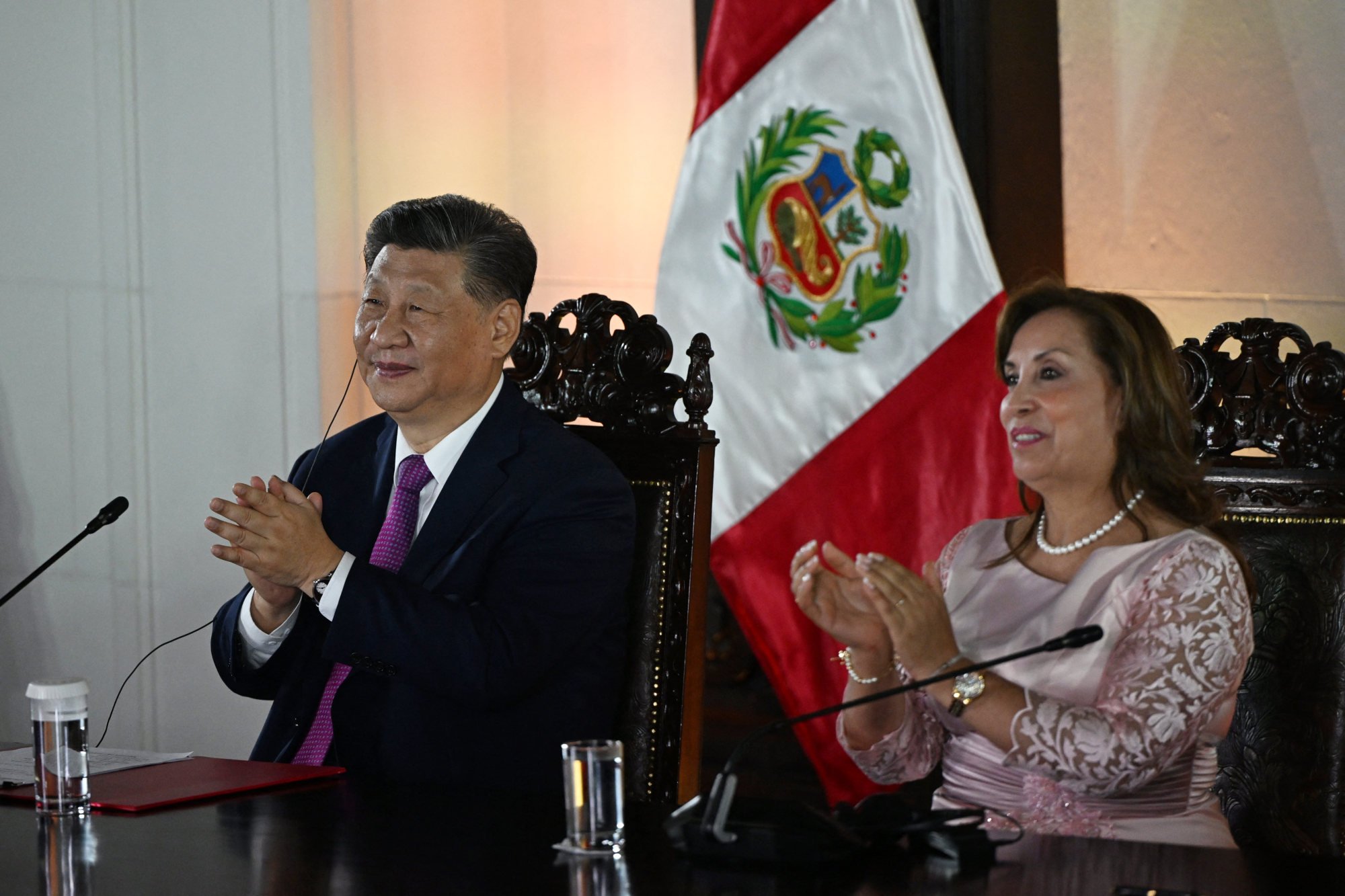China is unlikely to respond with “aggressive” retaliation to offset any impact from US president-elect Donald Trump’s proposed tariffs, but instead will work to increase domestic demand and diversify supply chains to third countries, two economists said on Wednesday.
Trump will put tariffs in place “quite quickly” after he takes office on January 20, although they could be implemented in steps, said Wang Tao, chief China economist at UBS Bank, and Mary Lovely, a senior fellow at the Peterson Institute for International Economics.
The economists said such moves would disrupt US supply chains and could also deepen trade cooperation between Beijing and the rest of the world.
Do you have questions about the biggest topics and trends from around the world? Get the answers with SCMP Knowledge, our new platform of curated content with explainers, FAQs, analyses and infographics brought to you by our award-winning team.
Trump has threatened to impose at least 60 per cent tariffs on all Chinese imports, while Republican lawmakers are considering revoking China’s preferential trade status, which could fast-track the tariffs.
Wang said Trump’s tariffs could drag on China’s economy by more than 1.5 per cent, although China could also look to policy responses. Such steps could include fiscal measures to boost domestic demand and diversify supply chains to other countries, which Beijing is already doing, as well as depreciation of its currency.
She said China also continued to invest overseas through its Belt and Road Initiative, with outbound investments expected to reach US$200 billion this year.
But China’s economy is facing a slowdown, prompted by weak domestic demand, a property crisis and local government debts. Since September, Chinese authorities have rolled out the largest extent of fiscal measures since the Covid-19 pandemic, including interest and mortgage rate cuts, hoping to revive the economy.
“Companies, of course, are diversifying investment and building supply chains in third countries instead of just exporting ... for the government. The key is to recognise that export cannot drive growth and it has to be domestic demand,” Wang said.
She projected that China would not aggressively retaliate against the US as it did in Trump’s first term – while still being open to trade talks – but could impose duties on targeted US products such as aircraft.
China retaliated with duties on a wide range of US products, including soybeans, in response to Trump’s US$200 billion in tariffs in 2018.
Lovely said the coming tariffs would cause supply chain disruptions in the US since it may not be able to diversify quickly on products such as electronics, for which it is highly dependent on China.
The tariffs will also send shock waves through US businesses and trading partners.
“So when the US starts to act, for many outsiders, it’s erratically in its own interest without consultation with other governments,” she said, adding: “What I fear is that we’ll end up with isolated supply chains for the United States, especially to the extent that the US pushes Chinese value-added out of third country suppliers, and so you’ll have much higher inputs for US manufacturers in particular, as well as higher costs for US consumers.”
She cited the example of the Chancay port in Peru as a sign of China’s “increasing ability to reach alternative markets”.

The port, inaugurated by Chinese leader Xi Jinping and his Peruvian counterpart Dina Boluarte last week, is a belt and road project, as Beijing looks to increase its economic footprint in the Global South. The port is a Chinese gateway to the South American market, as it will significantly cut shipping times between the continents.
Lovely warned that the revocation of China’s trade status, which she said could happen under Republican Party control of the White House and US Congress, would be “short-sighted”.
The US-China Economic and Security Review Commission, a bipartisan advisory panel, suggested in its annual report on Tuesday that Congress should repeal China’s preferential trade status, which was granted in 2000 in exchange for Beijing agreeing to open its markets ahead of joining the World Trade Organization.
Representative John Moolenaar, a Michigan Republican who chairs the US House’s Select Committee on the Chinese Communist Party, introduced a bill last week calling for the revocation, which would put a minimum of 35 per cent tariffs on Chinese imports, with duties raised to 100 per cent for “strategic goods”.
Revoking China’s trade status, Lovely said, “will hasten rearrangements and value chains and investments”.
“The rest of the world will continue to do business with China,” she added. “They will receive Chinese investment ... I think it will be much more costly for the United States in the long run than it is for China.”
More from South China Morning Post:
- Trump’s new China tariffs could give potent, brief boost to Southeast Asia
- China export ‘rush’ expected ahead of Trump’s trade war 2.0, Beijing to show restraint
For the latest news from the South China Morning Post download our mobile app. Copyright 2024.





